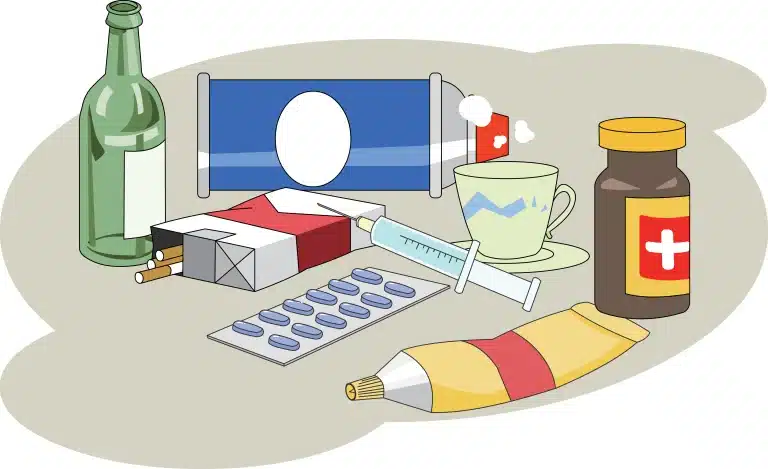Effective Drug Rehabilitation Is Comprehensive For Any Substance Use Disorders The Impact of Alcohol, Tobacco & Other Drugs on Society Research has concluded without a…
Effective Drug Rehabilitation Is Comprehensive For Any Substance Use Disorders
The Impact of Alcohol, Tobacco & Other Drugs on Society
Research has concluded without a shred of a doubt that abusing alcohol, tobacco, and drugs like opioids and other substance use disorders have both immediate and long-term health effects. Worldwide, the United Nations Office on Drugs & Crime estimated that 275 million people worldwide consumed drugs at least once in 2016. Approximately 31 million people who have used drugs suffer from drug use disorders; in other words, their drug use has progressed to the extent of needed treatment.

In the United States alone, it is estimated that approximately 22.5 million Americans have reportedly developed substance use disorders and require addiction treatment. Unfortunately, it is estimated that only 10% of those struggling with substance use disorder will be able to receive access to comprehensive treatment – some are limited because they don’t have insurance, and others may not have the financial means to pay for effective rehabilitation. By looking outside of the U.S. people can have access to affordable and effective drug rehabilitation services.
The most frequently abused substances include alcohol, and tobacco, as well as illicit drugs like cocaine, meth, heroin, PCP, MDMA, ecstasy), and prescription medications such Vicodin, Oxycontin, Xanax, Adderall, Ritalin, and others.
The Substance Abuse & Mental Health Services Administration (SAMHSA) mentions the following as just a few of the risks associated to substance abuse disorder:
- Excessive alcohol use can increase a person’s risk of developing serious health problems in addition to those issues associated with intoxication behaviors and alcohol withdrawal symptoms.
- Tobacco use and smoking do damage to nearly every organ in the human body, often leading to lung cancer, respiratory disorders, heart disease, stroke, and other illnesses.
- Marijuana has not only immediate effects like distorted perception, difficulty problem solving, and loss of motor coordination, but also effects with long-term use such as respiratory infection, impaired memory, and exposure to cancer-causing compounds.
- Opioids reduce the perception of pain but can also produce drowsiness, mental confusion, euphoria, nausea, constipation, and—depending upon the amount of drug taken—can depress respiration.
In addition to substance abuse disorder, people often suffer from other highly toxic and addictive behaviors including gambling addiction, sex addiction, social media addiction, work addiction, etc. all of which fall under the category of mental health & behavior science.
Effective Treatment for Substance Abuse Disorder & Behavioral Health
Fortunately, the study of addiction and mental health has advanced immensely in recent years making mental and behavioral health treatment services like the ones offered at Costa Rica Treatment Center available to anyone struggling with the disease of addiction, no matter what the manifestation of symptoms.
International drug rehabilitation centers help people with mental illnesses or substance use disorders get access to comprehensive treatment programs that address the underlying conditions of addiction. Studies show that the most effective approaches include a combination of evidence-based therapies and holistic approaches that make health improvements that affect the mind, body, and spirit.
Most therapies should be used in combination with psychiatric support to ensure the person is getting a comprehensive treatment plan that also factors in substance-induced imbalances in the individual’s brain. These effects need to be medically evaluated, addressed and supervised to ensure the person receives the necessary medical attention for the healing process to take effect.
Among activities and therapies like yoga, forest bathing, art therapy, occupational therapy, family therapy, physical training and recreational therapy below is a list of effective approaches used at Costa Rica Treatment Center.
Cognitive-Behavioral Therapy

Cognitive-behavioral therapy is a form of talk therapy used to treat a wide range of issues not just drug or alcohol addiction. It’s often the preferred type of psychotherapy because it can quickly help individuals identify and cope with specific challenges. It generally requires fewer sessions than other types of therapy and is done in a structured way.
Cognitive Behavioral Therapy helps the person become aware of irrational patterns of thought with clarity and enables the individual to respond to given situations in a more effective and productive way.
CBT is a very helpful tool in treating mental health disorders, such as drug addiction, alcoholism, depression, post-traumatic stress disorder (PTSD) or eating disorders. CBT can also be an effective life tool to learn how to better manage the stressful day to day situations.
Rational Emotive Behavior Therapy (REBT)
The advantages of Rational Emotive Behavior Therapy (REBT) are many particularly to those struggling with addiction and related conditions. It is said by many in the field of addiction that the disease is centered in a fundamentally distorted perspective.
Similarly to CBT, REBT is a short-term form of psychotherapy that helps the individual identify self-defeating thoughts and feelings, challenge the rationality of those feelings, and replace them with healthier, more productive beliefs. REBT focuses mostly on the present time to help you understand how unhealthy thoughts and beliefs create emotional distress which, in turn, leads to unhealthy actions and behaviors that interfere with your life. Once identified and understood, negative thoughts and actions can be changed and replaced with more positive and productive behavior, allowing you to develop more successful connections with personal and professional relationships.
Group Psychotherapy
Group psychotherapy involves one or more psychologists who lead a group of approximately 5 – 15 people. Therapeutic groups are designed to target a specific problem, such as substance abuse, alcoholism, addiction, depression, obesity, panic disorder, social anxiety, chronic pain, domestic abuse, and other topics. Participants in group therapy are usually surprised by how rewarding the group experience can be.
Talking and listening to others helps the individual to put their problems in the most beneficial perspective. Oftentimes, people feel like they are the only ones struggling and usually, it is not the case. It can be a relief to hear others discuss what they’re going through and realize the individual is not alone.
Diversity is another important benefit of group therapy. People have different personalities and backgrounds, and they look at situations in different ways. By seeing how other people tackle problems and make positive changes, you can discover a whole range of strategies for facing your own concerns.
Twelve-Step Facilitation
The National Institute on Drug Abuse states that twelve-step facilitation therapy is an active engagement strategy designed to increase the likelihood of a substance abuser becoming affiliated with and actively involved in 12-step self-help groups, thereby promoting abstinence. Three key ideas are the focal point of twelve-step facilitation therapy;
- Acceptance – includes the realization that drug addiction is a chronic, progressive disease that over time will become fatal if left untreated, and that life has become unmanageable because of drugs. That willpower alone is insufficient to overcome the problem, and that abstinence is the only alternative.
- Surrender – involves giving oneself over to a higher power, accepting the fellowship and support structure of other recovering addicted individuals, and following the recovery activities laid out by the 12-step program;
- Active involvement in 12-step meetings and related community activities.
Motivational Enhancement Therapy (MET)
The National Institute on Drug Abuse refers to Motivational Enhancement Therapy (MET) as a counseling approach that helps individuals resolve their resistance about engaging in treatment and stopping their drug use. This approach aims to stimulate rapid and internally motivated change, rather than guide the patient stepwise through the addiction recovery process. MET consists of an initial assessment, followed by two to four individual treatment sessions with a therapist. In the first treatment session, the therapist provides feedback to the initial assessment, stimulating discussion about personal substance use and inviting self-motivational statements.
Motivational interviewing principles are used to strengthen motivation and build a plan for change. Coping strategies for high-risk situations are suggested and discussed with the patient. In subsequent sessions, the therapist monitors change, reviews cessation strategies being used, and continues to encourage commitment to change or sustained abstinence. Patients sometimes are encouraged to bring a significant other to sessions.
Research on MET suggests that its effects depend on the type of drug used by participants and on the goal of the intervention. This approach has been used successfully with people addicted to alcohol to both improve their engagement in treatment and reduce their problem drinking. MET has also been used successfully with marijuana-dependent adults when combined with cognitive-behavioral therapy, constituting a more comprehensive treatment approach. The results of MET are mixed for people abusing other drugs (e.g., heroin, cocaine, nicotine, methamphetamines, etc.) and for adolescents who tend to use multiple drugs. In general, MET seems to be more effective for engaging drug abusers in the initial phase of treatment than for producing lasting changes in drug use.
Adventure Therapy for Substance use Disorders
Adventure therapy is a form of psychotherapy that originated in the 1960s. The therapy is particularly effective for drug addiction treatment and combines nature, community, and daring exercises that create therapeutic benefits. The intent of adventure therapy is to improve an individual’s physical, social, spiritual, and psychological wellbeing utilizing the healing power of nature with evidence-based, experiential therapy, recreational activities, and wilderness expeditions.
Adventure therapy assists individuals as they overcome behavioral issues, substance abuse problems, or various mental health disorders. Adventure therapy is considered a highly effective method, and the adventure therapist seeks to actively stimulate clients with different tools. Learn more about adventure therapy as applied in the process of recovery from addiction.
An Integral Approach is Best for Rehabilitation from Substance Abuse
For anyone open to traveling to receive treatment for substance use disorders like drug addiction, alcoholism, or mental health conditions like depression, anxiety disorders, and others; international rehabilitation programs like the ones offered at Costa Rica Treatment Center may be a viable option.
It is recommended to thoroughly review the services being offered by treatment centers abroad they make up a comprehensive approach to addiction treatment. The results show that by integrating varied evidence-based psychotherapies and approaches the individual has a greater chance of lasting success in recovery from substance use disorder.
For more information about our treatment programs contact us at info@costaricatreatmentcenter.com or call us toll-free USA/Canada 1 800 708 3656.








